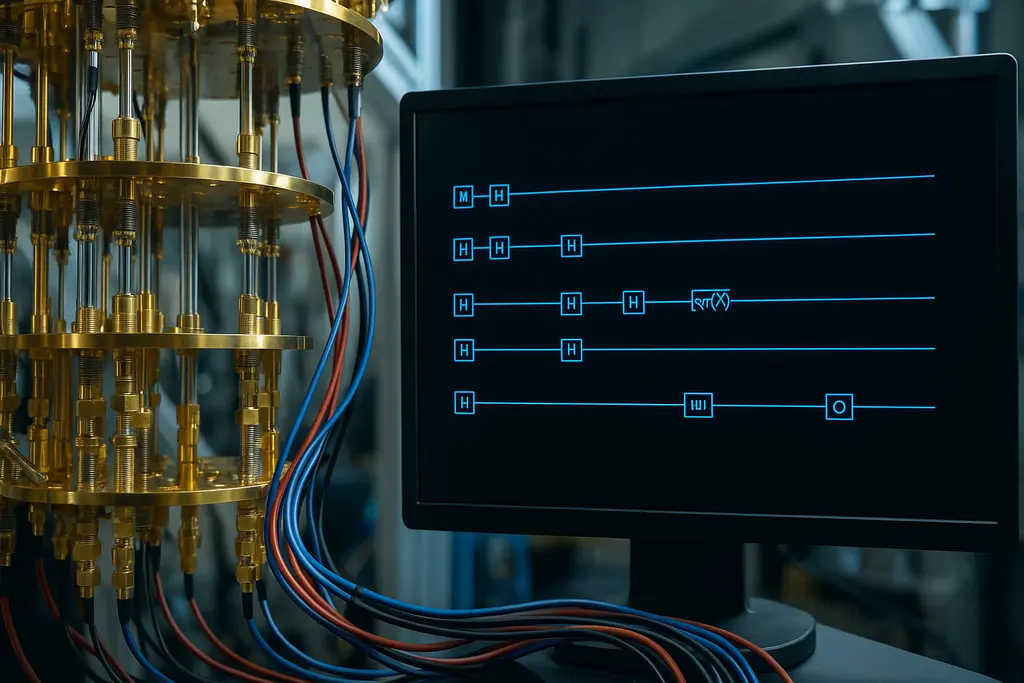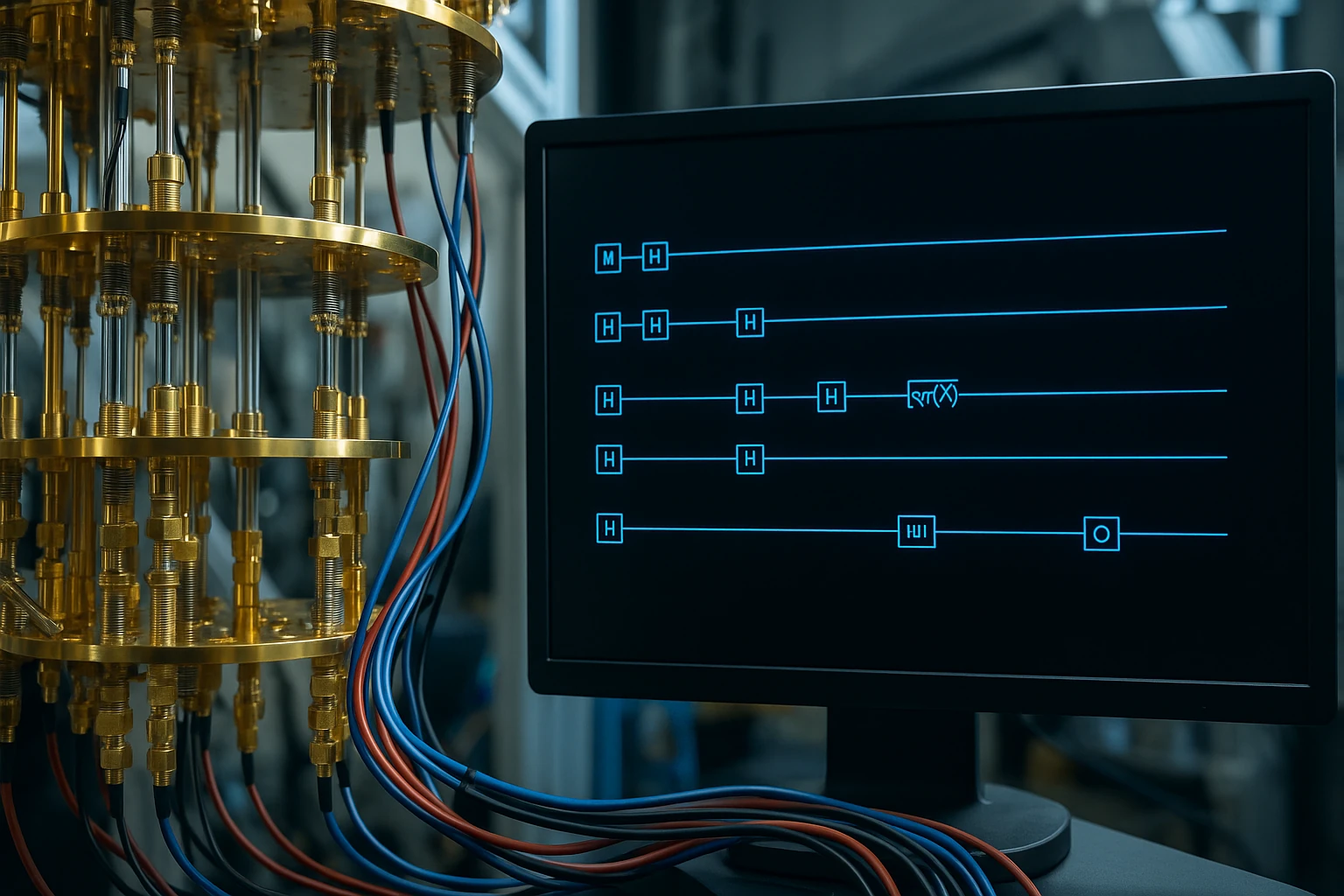In the fascinating world of computer science, solving complex problems is an ongoing journey, often likened to climbing challenging peaks. The race between researchers using classical methods and those exploring quantum potential is intense and full of twists. Often, when a quantum breakthrough is announced, the classical community quickly seeks ways to match or surpass that performance. It’s a technological tug-of-war driving innovation.
The Eternal Rivalry: Classical vs. Quantum
For a long time, this competition resulted in virtual ties. Quantum algorithms promising superior speed were soon followed by new classical approaches achieving similar results. I recently saw an example of this: a paper about a supposed quantum speedup, published in Science, was met with immediate skepticism by two separate groups who demonstrated how to perform similar calculations on classical machines. This dynamic shows just how robust and ingenious classical algorithms have become over the decades.

However, a recent development seems to have broken this pattern, at least for now. A paper posted on the scientific preprint site arxiv.org described what appears to be a convincing and, more importantly, useful quantum speedup. This new algorithm, known as Decoded Quantum Interferometry (DQI), demonstrated faster performance than all known classical algorithms in searching for good solutions to a wide range of optimization problems. It’s an exciting moment for the field.
What Makes DQI a Breakthrough?
DQI stands out because it tackles optimization problems notoriously difficult for classical computers. Optimization problems involve finding the best solution among a colossal number of possible options. Think logistics, like determining the most efficient route for a delivery truck visiting multiple cities, or how to pack items most efficiently. As the problem size grows, the number of potential solutions explodes, making classical methods—often smartly searching through these options—quickly unfeasible.
The specific problem DQI addresses is finding a mathematical function (a low-complexity polynomial) that touches the greatest number of points in a given set. Variations of this challenge appear across many areas in computer science, including code generation, error correction, and cryptography. The beauty of DQI’s approach is that its creators realized finding this ideal “wavy line” resembles the process of decoding a noisy message—bringing it closer to its correct meaning. This unexpected connection to decoding theory was crucial.
The Unexpected Journey Behind DQI
Interestingly, DQI’s development didn’t start with the optimization problem in mind. Stephen Jordan, a physicist with Google Quantum AI and one of DQI’s lead architects, recounts that the discovery followed a “winding” path. He joined Google in 2023 to work with Eddie Farhi, a pioneer in quantum algorithms. While Farhi explored optimization through energy concepts (where lower energies correspond to better solutions), Jordan sought a different approach, focusing on the wave-like nature of quantum physics.
Using the quantum Fourier transform, a powerful mathematical tool, Jordan found a way to translate possible solutions from a class of optimization problems into quantum waves. He discovered he could manipulate the quantum system so that larger waves (with higher amplitudes) corresponded to better solutions. The major challenge, however, was identifying these higher amplitudes within a complex quantum system. The solution came surprisingly: selecting the best solutions was analogous to error correction in coded messages, a well-established area of computer science known as decoding.
This revelation allowed Jordan and Noah Shutty, also from Google, to explore decoding techniques to develop the algorithm. After many tests and failed attempts against classical algorithms, they finally found a decoding approach—introduced in the 1960s to correct individual errors—that worked perfectly for the chosen optimization problem. “It feels like we succeeded almost immediately,” Jordan said about the breakthrough moment. Validation came from experts like Mary Wootters, who confirmed that no known classical algorithm could match DQI’s speed for this specific problem. It’s a significant step in quantum computing.
Challenges and the Horizon for DQI
Despite the excitement, DQI still faces practical challenges. Jordan acknowledges that the current form of the algorithm cannot run on today’s available quantum computers due to its complexity and hardware requirements. Quantum technology is still under development, and building machines capable of executing complex algorithms like DQI at scale is a massive engineering challenge. Meanwhile, the classical algorithm community continues its tireless search. As Ewin Tang, known for developing classical algorithms rivaling quantum ones, pointed out, this quantum breakthrough is a call for classical researchers to explore new directions. The healthy competition drives both fields forward.
However, research does not stop. Since the initial publication last August, researchers have already extended DQI’s application to a broader class of optimization problems, including variations of “best path” challenges. Jordan believes DQI will maintain its edge in these new scenarios as well. The quantum community celebrates each new algorithm demonstrating a clear advantage over classical methods, as they are relatively rare and illuminate the path toward the true potential of quantum computing.
Simplified Comparison: Classical vs. Quantum (DQI)
| Feature | Classical Algorithms (Complex Optimization Problems) | Quantum Algorithm (DQI) |
|---|---|---|
| Main Approach | Intelligent iteration, heuristics | Manipulation of quantum states (waves) |
| Performance on Specific Problems (e.g., Polynomial Fitting) | Becomes quickly unfeasible as problem size grows | Demonstrates superior speed for certain problem classes |
| Theoretical Basis for the Breakthrough | Mathematics, Computer Science | Quantum Physics, Decoding Theory |
| Required Hardware | Traditional computers | Large-scale quantum computers (still in development) |
| Current Status | Widely used, established benchmarks | Theoretical (depends on future hardware), promising |
Potential Applications of Quantum Optimization
- Logistics and Supply Chain (fleet routing)
- Finance (portfolio optimization)
- Drug Discovery (molecular simulation)
- Artificial Intelligence (model training)
- Materials Science (design of new materials)
- Cryptography (code breaking or creation)
- Communication Network Optimization
Common Questions About DQI and Quantum Algorithms
- What is “quantum advantage” or “quantum speedup”? It’s when a quantum algorithm solves a problem significantly faster than any known or theoretically possible classical algorithm for the same problem.
- Is DQI already used in practice? No, the DQI algorithm as described requires large-scale quantum computers that do not yet exist. It is a crucial theoretical advancement pointing toward future potential.
- How does DQI use “decoding”? It translates the optimization problem into a quantum system and, to find the best solutions, uses mathematical techniques similar to those used for identifying and correcting errors in coded messages.
- Will all optimization problems be faster with quantum computers? Not necessarily. Quantum research aims to identify specific classes of problems where quantum computing can offer a real advantage over the most efficient classical methods.
- What is an “optimization problem”? It is any problem seeking to find the best result (maximum profit, lowest cost, shortest route, etc.) from a large set of possible options, subject to certain constraints.
In my view, the emergence of DQI is another reminder of the incredible potential quantum computing holds. Although we’re still far from having machines capable of fully exploiting this potential, each new algorithm like DQI validates the research in this field and gives us glimpses of a future where today’s intractable problems can be solved efficiently. Collaboration and competition between classical and quantum approaches will continue to be the engine of this evolution.
What do you think about this race between classical and quantum algorithms? Leave your comment below!

